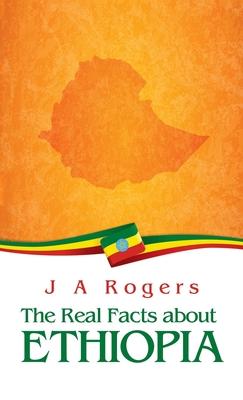Full Facsimile of the original edition. Not reproduced with Optical Recognition Software. J. A. Rogers was a Jamaican-American author, journalist, and historian who contributed to the history of Africa and the African diaspora, especially the history of African Americans in the United States. His research spanned the academic fields of history, sociology and anthropology. He challenged prevailing ideas about race, demonstrated the connections between civilizations, and traced African achievements. He was one of the greatest popularizers of African history in the 20th century. The Italian invasion of Ethiopia in 1935 inspired grass roots political activism in black America and is the background to this pamphlet. Rogers's text critiques the nature of race under colonialism by illustrating how state boundaries and racial categories are coordinate, strategic operations of colonial power. In many respects it functions as any early statement of anti-colonialism from the black perspective.

Full Facsimile of the original edition. Not reproduced with Optical Recognition Software. J. A. Rogers was a Jamaican-American author, journalist, and historian who contributed to the history of Africa and the African diaspora, especially the history of African Americans in the United States. His research spanned the academic fields of history, sociology and anthropology. He challenged prevailing ideas about race, demonstrated the connections between civilizations, and traced African achievements. He was one of the greatest popularizers of African history in the 20th century. The Italian invasion of Ethiopia in 1935 inspired grass roots political activism in black America and is the background to this pamphlet. Rogers's text critiques the nature of race under colonialism by illustrating how state boundaries and racial categories are coordinate, strategic operations of colonial power. In many respects it functions as any early statement of anti-colonialism from the black perspective.